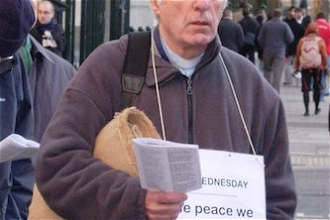Eyewitness report from Tapaktuan, Indonesia
Tapaktuan would make a nice resort town. Beautiful beaches and rows of palm trees line the main road, making for a postcard perfect scene. Tapaktuan is a small town of 15.000 people on the west coast of Aceh, some 120km south of Meulaboh. This idyllic town is known mostly as a transit point for everybody heading to the better known Meulaboh. Yet the tsunami aftermath did not spare this town. Tapaktuan was not directly affected by the tsunami. This is surprising given the geographical fact that several coastal areas and Nias Island further south were also hit. The tsunami came only when thousands of refugees fleeing disaster areas in Banda Aceh and Meulaboh arrived in the town. The waves of refugees came in small groups taking public transport or walking. Upon arrival they tried to find relatives and friends in the town, creating the so called non-camp situation. Over a thousand refugees in the town and a many more in the surrounding villages are now at risk. I met Hasanah, a forty-something mother of five children. She survived the disaster along with her whole immediate family. She is now taking shelter in her sister's place together with 35 other refugees, all related to the host. It is difficult to imagine how they managed to crowd into a house. She came to the health clinic organized by JRS and a local partner to get free treatment for her third child; "I have no money so I walked to get here. But it was okay as my son finally got treated." The next day I met Abdul Rasid. The seventy-five year old man was reciting the Quran when I came to visit him. He survived the disaster in Teunom but lost his wife, three children, two in-laws, and three grandchildren. He is now living with his son Azis and family who are also refugees from Meulaboh. They share a house with Azis' mother-in-law in Tapaktuan. The host is a widow with no source of income apart from money sent by her far away children. The plights of Hasanah and Abdul Rasid are not uncommon in Tapaktuan. The host families are themselves poor and live within a subsistence economy. The addition of several more dependants is definitely a heavy burden to shoulder. "Since I came here after the tsunami, I have received only two bamboos of rice (one "bamboo" being equal to almost two kg) and five to ten packets of instant noodles," said Azis. No big NGOs are present and the local government body for disaster relief has so far received only four trucks of food logistics. There are stories that some refugee families had to eat raw bananas in place of rice. Some families are lucky enough to be well connected to the local government officials, allowing them to get additional food aid but certainly at the expense of other refugees. It is natural for many families in Aceh and the rest of Indonesia to take in their relatives whenever a disaster occurs and displaces them. The kinship system works in line with the extended family network. The bonds of kinship are revived during family occasions such as the birth and death of family members and religious celebrations such as Idul Fitri. During such occasions distant relatives come over, share stories and nostalgia and sometimes stay for a couple of nights. When disaster happens, this system provides a cushion for those who fall off. The host family pools all resources available in the extended family to help their relatives. The cushion, however, is not thick enough to sustain the fall experienced by victims of the recent disaster. As thousands of refugees are now relying solely on their relatives, the situation is getting more difficult. Azis' mother in law could only smile politely when I asked how she was going to cope. Wir, an activist with the local NGO, told a metaphor to describe the situation. The refugee situation in Tapaktuan is like a person hanging from a tree. Only now the tree is not a strong mango tree but a fragile banana tree. Once the burden is a bit too heavy, the tree will instantly fall. When combined with the rising prices of food and basic supplies owing to much higher demand than supply, the kinship system that has provided a crucial safety net is unlikely to survive the increasing strain. "I do not know how long more they will survive if we do not do anything to alleviate their suffering," Wir lamented the situation. "There is no other way around. We've got to do something." Source: Jesuit Media Office


















